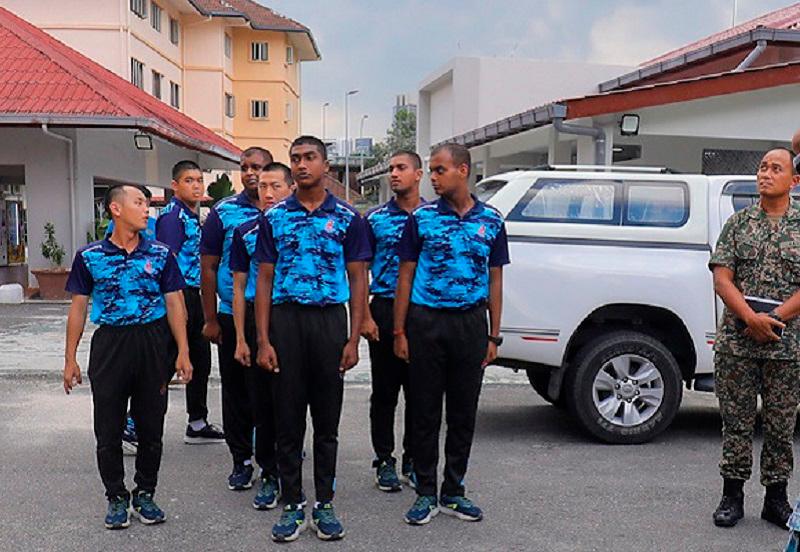KUALA LUMPUR: The National Service Training Programme 3.0 will begin its second series this May, featuring a new module and concept in contrast with the previous versions, said National Training Department director-general Mej-Jen Datuk Ya’cob Samiran.
He said the programme’s concept was developed based on the National Service Training Act (Act 628), the National Security Policy, the Defence White Paper and other relevant policies.
He added that the programme’s pre-phase, which involves Form Four students, would be conducted in schools during co-curricular activities, involving around 320,000 individuals.
“Meanwhile the basic phase, involving youths aged 17 and above, will start this year at 13 Territorial Army camps, 20 public universities and several selected polytechnics nationwide involving approximately 1,000 individuals.”
The programme’s third version kicked off on Jan 12 with 142 volunteer trainees aged 18 to 25, including 44 females.
Ya’cob said the new module includes 30% foundational national service content, focusing on civics and nation-building topics such as Malaysian history, political system and multicultural diversity.
He said about 70% of the National Service Training Programme 3.0 consists of basic military training, including navigation, marching, personal arms training and the Asas Kesejahteraan Hidup Malaysia Madani module.
“The new module also includes technical and vocational education and training, offering students the chance to explore careers they are interested in, with industries actively seeking the programme’s graduates.”
Ya’cob said attendance for the second and third series of the programme this year would be mandatory for selected 18-year-olds.
He said unlike the first series, which began last month on voluntary participation, the next two batches would be randomly selected and screened.
“The upcoming series will be screened through a computerised system and further vetted by the Social Welfare Department, Education Ministry and police, among others.
“Participants will be assigned to separate military camps, divided into two groups based on gender, and undergo six weeks of training at either the 515th Territorial Army Regiment Camp in Kuala Lumpur or the 505th Territorial Army Regiment Camp in Pekan, Pahang.”
Ya’cob said it is mandatory for individuals selected to participate in the second series and subsequent batches to attend unless they have a valid reason and request a deferral.
He said under the National Service Training Act, those who are granted exemptions from attending would need to complete the course at a later date.
“Individuals who are employed must obtain permission from their employer. If permission is denied, the employer must provide a valid reason as the programme is governed by the Act.
“Trainees will also receive an allowance to cover their travel to the camps and will be insured for the 51 days of the programme.
“For next year, it will involve between 10,000 and 25,000 trainees who turn 18 in 2026, with priority given to young adults who are not pursuing higher education.”
Ya’cob said participants would use Malaysian Army camouflage uniforms as it aligns with practices in many other countries running similar programmes.
“The decision to use the military uniform was approved at a national meeting chaired by Prime Minister Datuk Seri Anwar Ibrahim. Additionally, using the existing uniforms helps reduce government spending, as they are already available in the inventory.
“These camouflage uniforms will be returned after the training and they will continue to be used in future.”
Ya’cob said the programme is a crucial initiative aimed at shaping identity, patriotism and positive values among the youth as the nation’s future leaders.









